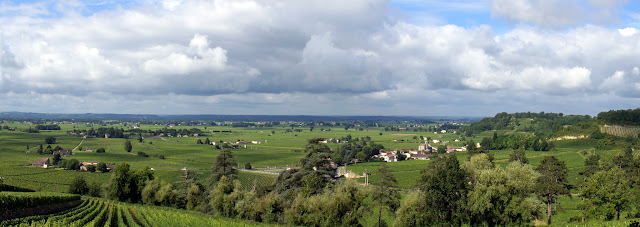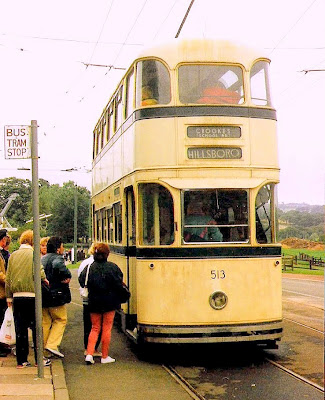Hardly
anyone in the West can be found to argue against democracy; it's
considered a truism that democracy is the best form of government.
Countries moving towards democracy are making political progress
while those with other systems are politically backward. When applied
to systems of government, the word ‘undemocratic’ has become a
synonym for ‘bad’.
You'd
be tempted to think we knew what democracy was.
You'd
certainly be excused for thinking we believed ourselves and most
western countries to possess democratic systems.
But
do we?
Representation
in the UK has travelled a long road from the days when the leading
citizens of each borough used to select two of their number to travel
to the capital for short assemblies. These meetings were called to
decide basic issues of taxation and supply, and after them MPs
returned and explained matters to their fellow citizens.
From
the enfranchisement of the masses to a restructuring of political
parties to reflect the changed electorate took maybe half a century.
From there to the voters' realising their votes weren't making any
difference took another fifty years or so. From that realisation to
giving up voting took about fifty more.
A
whole class of people who know no trade but politics has grown up and
taken control. They've been aided by manipulative, self-interested
groupings known as political parties.
Whatever
this system should be called, I doubt if it's democracy – timocracy
or plutocracy maybe. The literal translation of democracy in ancient
Greece was ‘government by the people’. Government by the people
as a whole was practicable in the city state. Representative
democracy, evolved to apply the same idea to larger states, was
hijacked by the party system as soon as the expansion of the
franchise pushed communication with the electorate beyond the
financial reach of most independent candidates.
In
the UK, with mass party membership a thing of the past despite the
recent accession of numerous hard left activists to Labour,
candidates are chosen by a small group of party members in each
constituency. Combining this degraded system with parliaments lasting
for several years results in something more reminiscent of what Lord
Hailsham called ‘elective dictatorship’ than government by the
people.
Churchill
described democracy as the
worst system of government except for all the others that have from
time to time been tried.
Not a good thing – just the best of the available evils.
The
drawbacks are obvious. Why
was I condemned to live in a democracy where every fool's vote is
equal to a sensible man's?
asked John
Wyndham. There spoke a man in the Platonic tradition; everyone should
stick to what they are good at, a neo-Platonist says, and most people
are no good at statecraft.
Isn't it true of any
specialist subject? If you were about to undergo brain surgery would
you rely on a brain surgeon or take a vote among all the patients in
the hospital? Would you rather your airliner was flown by a pilot or
elect someone from among the passengers?
If we agree
specialist tasks should ideally be performed by specialists, then a
democrat presumably believes running the country demands no
expertise?
Let's
go further. How many who live with the supposed blessings of a
democratic system can define democracy or enumerate its benefits?
Even elected politicians, who surely ought to know, are regularly
heard to make a simplistic equation between democracy and majority
rule.
If
democracy were indeed the same thing as majority rule then of course
it would be far from the best possible system of government. It's not
hard to show examples of what J S Mill called ‘The tyranny of the
majority’.
Suppose
a society to be divided upon ethnic, religious or economic grounds,
such that one section was always outvoted. Is it democratic for the
majority to rob, persecute or enslave that minority? If not, then
majority rule (alone) is not democracy.
More
crudely, the doctrine of the mandate is widely taken to mean a
'democratically'
elected government is empowered to put into practice any element of
the manifesto upon which it stood. The voters who supported that
government are held to have endorsed everything it proposed, even
though many voters are not expressing support at all but voting
tactically - choosing a lesser evil.
If
it is undemocratic to claim a mandate for something people have not
consciously endorsed, is it any better to give them what they do
want? Populist politicians regularly promise impossible or damaging
policies so long as the people want them. These politicians may not
care about deceiving the people; their objective is simply to be
elected.
The
huge debts which threatened economic collapse in so many countries
recently were the results of the unsustainable mortgaging of tomorrow
to pay for today. Ask people if they want goodies and of course
they'll agree, as long as someone else pays. Deficit financing
effectively makes our children pay. Eventually the pile of debt
becomes unserviceable. Yet riots and demonstrations attended upon
attempts to return to affordable levels of public spending.
Under
many supposedly democratic systems even the principle of majority
rule breaks down. Total power is handed to the largest minority. The
2010-15 UK coalition government was the first since the Second World
War to be formed by MPs who collectively received more than fifty
percent of the popular vote. In spite of this, previous
minority-supported governments enacted widespread and radical changes
to society.
So
if democracy is not government by the people, by a majority or even
by the largest minority thereof, what does it actually mean today?





































